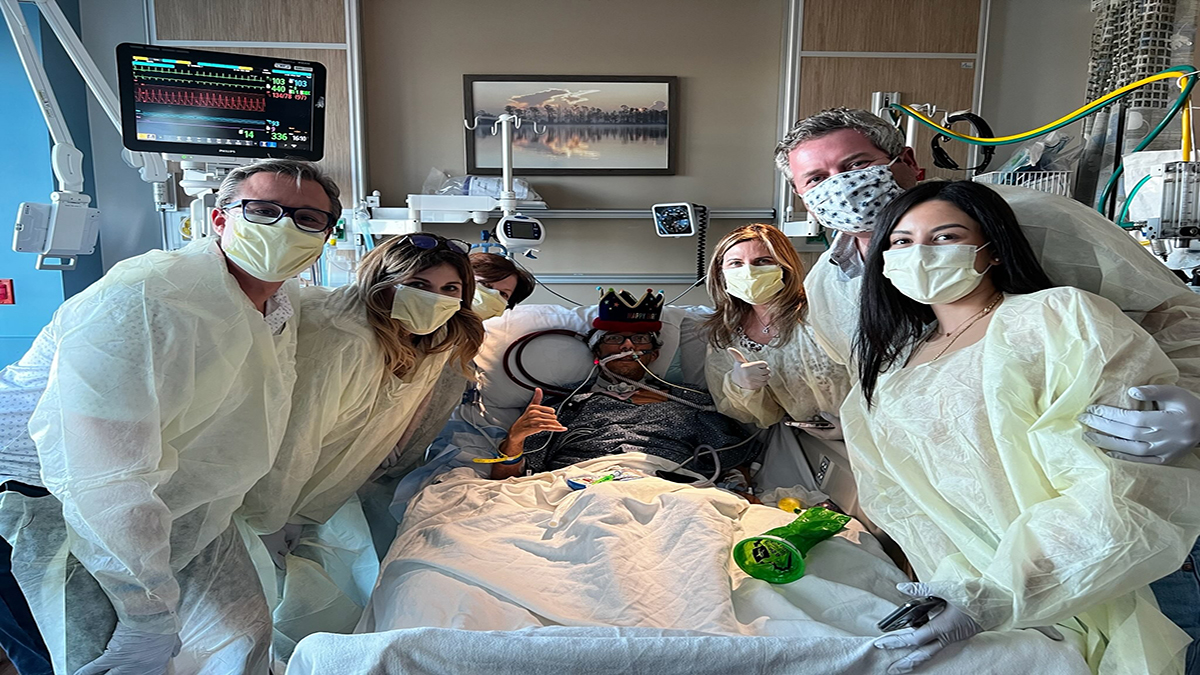New COVID-19 testing guidance released by the Florida Department of Health Thursday is at odds with federal guidance issued by the Centers for Disease Control and Prevention.
The new guidance from the department of health comes days after Florida Surgeon General Joseph Ladapo said the state is following a “sensible public health" campaign that focuses on testing only at-risk patients and those showing symptoms of COVID-19.
Florida Gov. Ron DeSantis said the number of people who end up on ventilators due to the omicron variant is much lower than during the summer surge of the delta variant. He said the most severely ill patients in hospitals still tend to be suffering from the delta variant.
“Our view on testing is if you are just young and healthy, you don’t need to be running out and getting tested every day," DeSantis said.
Get South Florida local news, weather forecasts and entertainment stories to your inbox. Sign up for NBC South Florida newsletters.
At a news conference Friday, DeSantis stressed that getting tested is an individual decision.
"People can do what they want, we're not doing any type of restriction or whatever, but just going out and testing yourself all the time if you're not sick, there's very little clinical value to that, and so if you're talking about resources being used, that would be kind of a very low value use of testing," he said.
The new recommendations from the state urge symptomatic COVID-19 patients to get tested, but says that testing if you’re asymptomatic “is unlikely to have any clinical benefits.”
The guidance continues to say that certain groups of people who are at risk of severe COVID-19 infection — including those with cancer, diabetes, chronic lung conditions or compromised immune systems — should get tested promptly after symptom onset.
Conversely, the CDC emphasizes that anyone who has been exposed to COVID-19 – regardless of whether they are symptomatic or asymptomatic — should get tested.
The federal health agency said the only people exposed to the virus who don’t need to get tested are “people who have tested positive for COVID-19 within the past three months and recovered, as long as they do not develop new symptoms.”
"People who have come into close contact with someone with COVID-19 should be tested to check for infection at least 5 days after they last had close contact with someone with COVID-19," the CDC's guidance reads.
Get updates on COVID-19 in your inbox. Click here to sign up for our weekly coronavirus newsletter.
The new guidance issued by the department of health says that those with symptoms and risk factors should consider monoclonal antibody or antiviral drug treatment to fight the virus.
Doctors say that while monoclonal antibody treatment is effective for many patients, it is not recommended for certain groups.
Candidates for monoclonal antibody treatments include elderly patients (those 65 years or older) and those with chronic kidney disease, diabetes, morbid obesity and sickle cell.
Treatments are not authorized for patients who are hospitalized due to COVID-19 or who require oxygen therapy due to the virus.
“This is not for someone with severe symptoms, this is not for someone who is hospitalized, not for someone hospitalized on oxygen,” said Dr. Aldo Calvo, the medical director of ambulatory services at Broward Health Medical Center.



